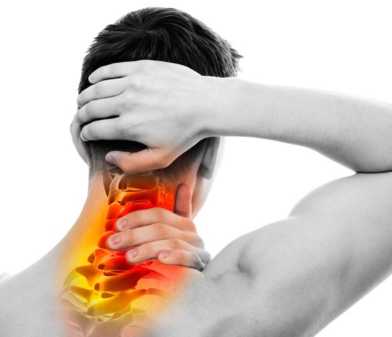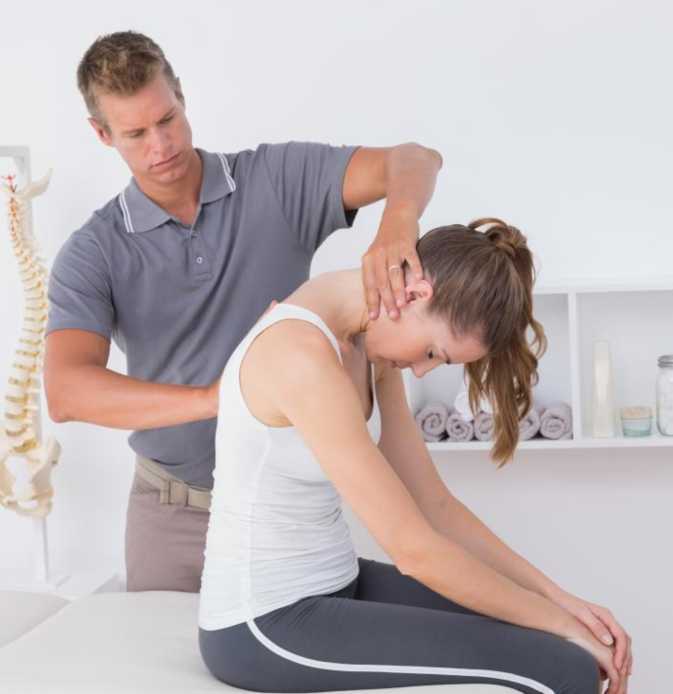Do you require any assistance? Simply reserve your appointment online below
Pinched nerves in the neck (Cervical Radiculopathy)
We’ve got you covered
Cervical radiculopathy, often called a pinched nerve, is a compression or impingement of a nerve in the neck. It often causes significant discomfort in the upper extremities.
While it can be debilitating if left untreated, most patients recover completely with some simple conservative treatment.
In younger people, it is most often caused by a sudden injury that results in a herniated disk. In most cases, cervical radiculopathy responds well to conservative treatment that includes medication and physical therapy.

Causes of pinched nerves on the neck

Cervical radiculopathy is caused by repeated stress on the spine. As a result, it’s more common in patients with existing spinal conditions such as a herniated disc, degenerative disc disease, or spinal stenosis.
Each of these disorders damages the discs that protect the spinal nerves and reduces the space between them, increasing the patient’s risk of developing a pinched nerve.
Symptoms of pinched nerves
The most common symptoms of pinched nerves are pain in the neck and upper back and a sense of numbness, tingling, or general weakness in the arms.
Stretching or straining the neck, sleeping with your head turned to the side, and tilting your head as you talk on the phone can aggravate these symptoms.
Diagnosing Pinched nerves in the neck
Your doctor will ask about your symptoms and conduct a physical examination.
If your doctor suspects pinched nerves, you may undergo some tests. These tests may include:
Possible tests to diagnose this problem are:
- Imaging tests, such as an X-ray, CT scan, or MRI scan. These tests let your doctor see the structures in your neck or back. Your doctor may also inject a contrast material (a dye) into your spinal canal to help show the problem area.
- The doctor may ask you to lie on your back and lift your leg while holding it straight or perform other movements. If you have pain with certain movements it may help with the diagnosis.
- Your doctor may do tests that check how well your nerves and muscles are working.

You are in Great Hands
Treatment of Pinched nerves

Cervical radiculopathy is generally diagnosed after taking an MRI of the cervical spine and performing an EMG or a nerve conduction study.
During these tests, your doctor will chart the path of an electrical current to determine the extent of the damage to the nerve or surrounding muscles.
As soon as it’s diagnosed, patients will begin a physical therapy program that’s designed to eliminate pain and inflammation while restoring your range of motion.
After performing manual nerve glides to reduce irritation in the neck, your physical therapist will manually perform traction on your neck and teach you some stretching and joint mobilization techniques to relieve inflammation and expand your range of motion.
If these exercises are practiced regularly, they should prevent further nerve impingement and relieve pressure on the nerve roots, providing nearly complete relief.
If necessary, cervical epidural steroid injections can also be administered to eliminate pain as you rehabilitate your neck
Depending on the location of the pinched nerve, you may need a splint or brace to immobilize the area. If you have carpal tunnel syndrome, your doctor may recommend wearing a splint during the day as well as at night because wrists flex and extend frequently during sleep.

Living with pinched nerves
Medicines like nonsteroidal anti-inflammatory drugs (NSAIDs), corticosteroids, or stronger narcotic medicines help reduce nerve swelling and relieve pain. Corticosteroids may also be given as an injection, which will also reduce inflammation and pain allowing the nerve to heal.
Losing weight, if needed will help relieve pressure on the joints. Physical therapy may use specialized exercises to strengthen and stretch the neck muscles. A physical therapist may suggest wearing a soft collar or using traction to help the neck muscles rest and heal. Your healthcare provider may suggest a home exercise program that you can do on a routine basis. These measures also relieve pressure on the nerve.
Your healthcare provider may be able to suggest self-care steps to help prevent or treat a pinched nerve.
